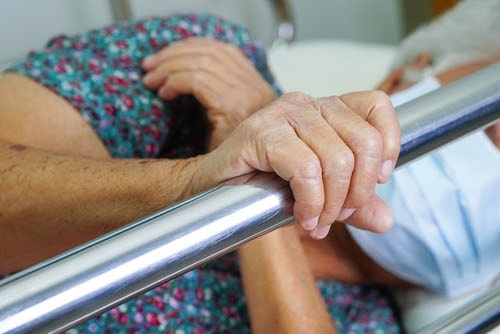Sepsis is a serious and potentially deadly physiological response to infection. It requires a prompt diagnosis and immediate medical care. Sepsis is more dangerous for elderly nursing home residents whose immune systems are less able to fight infections and for those with pre-existing conditions that heighten their risk of sepsis. Nursing home workers are responsible for identifying and resolving infections before they become septic. If the resident of a nursing home or other care facility develops sepsis, it could suggest nursing home negligence. If your family member experienced sepsis or septic shock while in the care of a nursing home, the Hampton personal injury attorneys at Shapiro, Washburn & Sharp can determine if negligence occurred and help you incite legal action against the liable party. Call us today to schedule your free consultation.
What is Sepsis?
Sometimes referred to as blood poisoning, sepsis is a potentially fatal condition that develops when the body overreacts to an infection. When germs such as Streptococcus, Staphylococcus, and E. coli enter your bloodstream, a functioning immune system generates inflammatory cells that kill off the germs and heal the damaged cells. In some cases, your body’s inflammatory response is so severe that it harms your body rather than healing it, causing sepsis.
Blood clotting and inflammation can result in a decreased flow of blood to extremities and vital organs, which increases the risk of organ failure, tissue damage, and death. When the condition leads to organ malfunction caused by dangerously low blood pressure, it is known as severe sepsis which, without prompt medical treatment, can turn into septic shock.
Similar to strokes and heart attacks, both sepsis and septic shock are considered medical emergencies that demand immediate intervention if serious health consequences and fatalities are to be prevented.
How is Sepsis Caused by Nursing Home Neglect?
Sepsis usually occurs suddenly and develops rapidly. However, the inciting infection tends to be more gradual. Healthcare professionals are trained to identify signs of an infection, diagnose it, and treat it before sepsis sets in.
Sadly, nursing home neglect is a serious issue in our country’s senior care facilities. Some forms of nursing home negligence that can lead to sepsis in residents include:
- Inadequate supervision: A lack of supervision can cause numerous problems, including accident-related injuries that lead to infection-prone wounds, and inadequate repositioning of those who are bedridden or disabled. Inadequate supervision can also result in delayed medical care for those already showing symptoms of sepsis.
- Insufficient wound care: Sepsis can also develop when bacteria are allowed to get into open wounds. Poor wound debridement, treatment, and bandaging increase the risk of sepsis.
- Misdiagnosis: When a medical professional fails to diagnose a resident properly, or delays their diagnosis, the consequences to their health can be severe. For example, a physician might claim that a resident’s illness is only the common cold when they actually have a respiratory infection. Mistaking a serious illness for something minor and commonplace could also lead to sepsis.
- Poor disease control, sanitation, and hygiene: Although sepsis is not communicable, many of the underlying infections that cause it are. Therefore, sepsis prevention also requires efficacious infection prevention protocols, such as thorough sanitation, the use of personal protective equipment, and proper handwashing. If these and other safety protocols are not followed, workers can pass infections from resident to resident, resulting in an outbreak.
Nursing home neglect, whether deliberate or accidental, can lead to sepsis, septic shock, and even death. Preventing sepsis and, by extension, its potentially life-threatening consequences, is a legal duty of care owed by all nursing homes and their employees to their residents. When a nursing home’s negligence leads to an aging loved one’s life-threatening illness or death, the facility is liable for damages. Nursing homes and other care facilities have a responsibility to provide proper care to their residents. If a breach of duty results in any type of illness or fatality, the nursing home can be held liable via a personal injury claim or a wrongful death lawsuit, which is how we were able to secure a $300,000 arbitration award for one client after she was injured due to nursing home negligence. If you would like to discuss your potential nursing home neglect case, contact the experienced Hampton personal injury attorneys at Shapiro, Washburn & Sharp for a free consultation by calling (833) 997-1774 or filling out the contact form on our website. We have offices in Hampton, Norfolk, Chesapeake, Portsmouth, and Virginia Beach.
